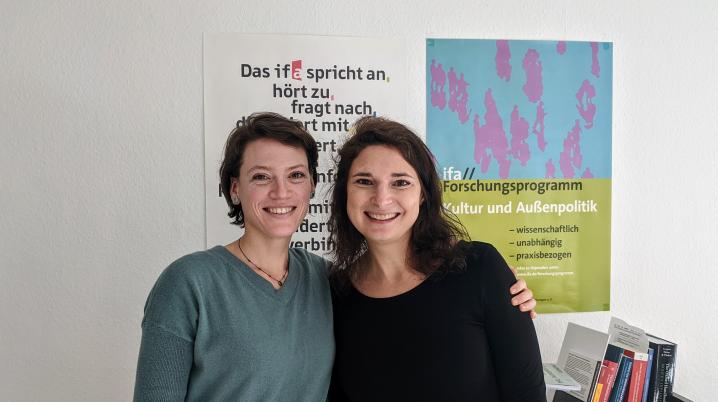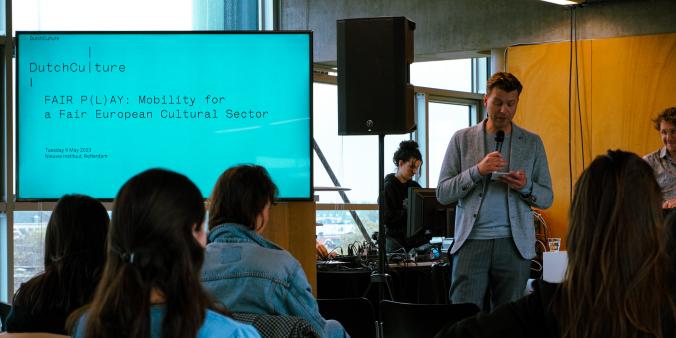
How the world is interconnected: job shadowing at ifa
When the opportunity arose to do a job shadowing through EUNIC Global, my first thought was to go as far as I could, to a geographical context which would be as unfamiliar as possible to the Dutch context. But actually, after having given it more thought, it made much more sense to go to ifa in Stuttgart (Germany). Ifa, which stands for Institut für Auslandsbeziehungen, is the Institute for international and cultural relations in Germany. The idea came to me when I attended a seminar which was organised at ifa with EUNIC Global and the University of Siena, and my attention was immediately captured by the activities of ifa.
I have spent 2,5 days getting to know all the departments; the research department, the media department, the Civil Society fund, and browsing through their impressive library collections. They have all relevant studies and literature that deal cultural and/or international relations dating back 100 years.
Co-creation
Ifa is a century old institute, but it struck me how the institute has kept up with its time. Even though they think of themselves as a 'small' ngo with around 150 employees, they are dealing with very relevant and important developments within the field of cultural and international relations. Ifa has a department called Dialogue, which deals with Civil Society and how to help activists and artists who live in dangerous places but still are trying to make the world a better, safer and culturally more enriched place. Co-creation was certainly the buzz word, supporting a more bottom up approach, working together with grassroots organisations, and striving for dialogue between civil societies. Ifa has also acquired a research alumni network of more than 90 researchers, all who have done impressive studies worldwide on any given topic within the cultural and international relations subjects.
Cultural connections
I was very much impressed by all the knowledge that was captured in the people, the building, the library, the gallery, which are all in the end the embodiments of a bigger thought behind this: how the world is interconnected and how we are all responsible for a respectful and just society through cultural connections. Culture is so often misused as a populist tool or as propaganda to influence people or a people from a certain nationality. I believe it’s important to promote cultural participation to all people, really getting to know the history of one’s culture in order to foster understanding and solidarity. I felt that ifa is a very good institutional example of promoting this goal.
In light of the Covid-19 pandemic, the work for which ifa stands, has become even more important, since international cultural relations can trigger the solidarity which the EU is in desperate need of at the moment and foster the joint shared values the European idea envisages.
For more information visit:EUNIC Netherlands or EUNIC Global.


